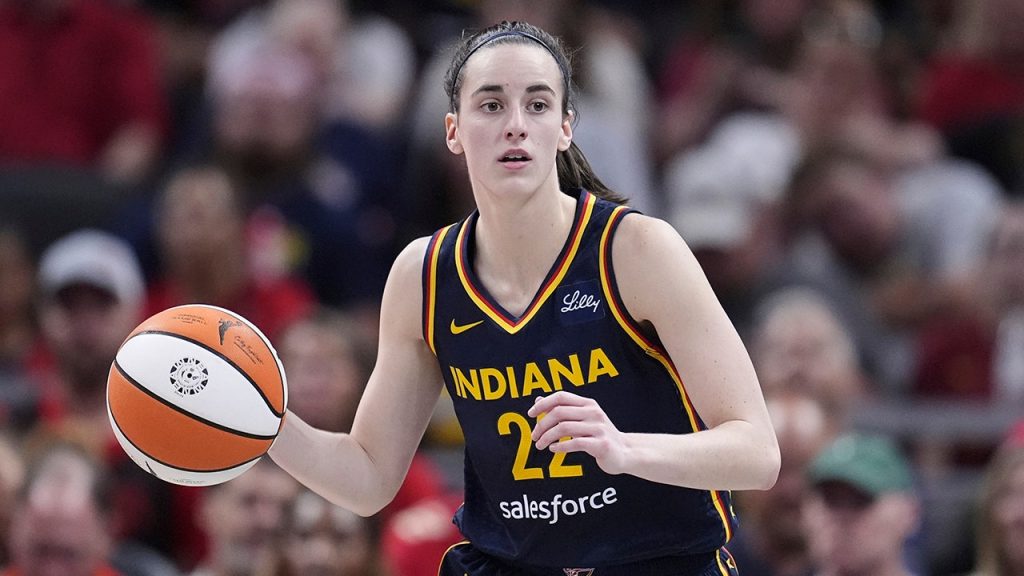Caitlin Clark’s meteoric rise to basketball stardom has been a captivating narrative, marked by both unparalleled achievement and intense scrutiny. Her journey from a collegiate standout to a professional game-changer has been swift, propelling her into the national spotlight while simultaneously placing her at the center of complex cultural conversations. The trajectory of her career, though undeniably impressive, has been intertwined with debates surrounding race, gender, and the evolving landscape of women’s sports, solidifying her status as a polarizing figure.
Clark’s ascent began with her record-breaking performances at the University of Iowa, culminating in an unforgettable national championship showdown against Angel Reese. This high-stakes matchup not only showcased Clark’s exceptional talent but also marked a turning point in her career, catapulting her to a level of recognition that transcended the realm of college sports. Her senior year witnessed a cascade of accolades, including becoming the NCAA’s all-time leading scorer, a feat that cemented her place in basketball history. This achievement ultimately paved the way for her selection as the No. 1 overall pick in the WNBA draft, a testament to her undeniable skill and the growing recognition of women’s basketball.
However, Clark’s newfound fame brought with it an unwelcome wave of criticism and controversy. Her popularity became a subject of debate, with some, including WNBA MVP A’ja Wilson, suggesting that her race played a role in the level of attention she received. These allegations ignited a wider conversation about race, representation, and the often-unequal treatment of athletes across different demographics. Clark found herself navigating a complex landscape, where her on-court achievements were often overshadowed by discussions about race and the perceived biases within the sports media. Despite this, Clark remained steadfast, seemingly unfazed by the criticism and determined to focus on her game.
As Clark transitioned into the professional arena, the scrutiny continued. She faced hard fouls, trash talk, and persistent allegations of racism directed at her from fans of both the Indiana Fever, her WNBA team, and her alma mater, the University of Iowa. These accusations, often amplified by social media, added another layer of complexity to her already challenging rookie season. Despite the negativity, Clark continued to excel, setting numerous WNBA records and leading the Fever to a playoff appearance after a sluggish start. Her ability to perform under pressure and maintain her composure amidst controversy solidified her reputation as a resilient and determined athlete.
Throughout this tumultuous period, Clark maintained a remarkable level of composure and focus. She credits her upbringing and the unwavering support of a close-knit circle of family and friends for her ability to navigate the challenges she faced. Clark has consistently emphasized her gratitude for the opportunities she’s been given and her commitment to treating everyone with respect, regardless of the circumstances. This grounded approach, coupled with an unwavering self-belief, has allowed her to rise above the negativity and continue to excel both on and off the court.
While the controversies surrounding Clark have undoubtedly been a significant part of her narrative, it’s crucial to acknowledge her undeniable impact on the sport. Her presence has brought unprecedented viewership to both college and professional women’s basketball, demonstrating the growing interest in the sport and the power of star athletes to draw in new audiences. From record-breaking college games to sold-out WNBA arenas, Clark’s popularity has translated into tangible growth for women’s basketball, paving the way for future generations of athletes. Her Rookie of the Year award, All-Star selection, and All-WNBA first-team honors are further testament to her remarkable talent and the indelible mark she is making on the game.

